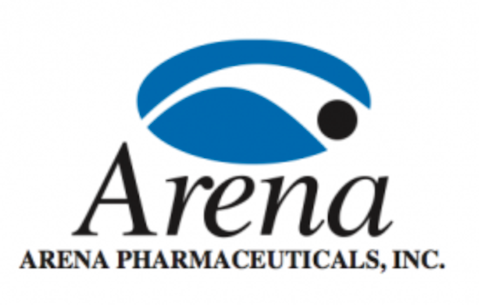With over 35% of adult Americans and 17% of children categorized as obese, obesity is epidemic in this country. Though Americans are the chubbiest, fat people are becoming more prevalent throughout the developed and developing economies. Being fat is not good for you. Obesity is correlated with an increased risk for heart attacks and strokes, and is the main driver of a corresponding epidemic of Type II diabetes. The most effective means of combating obesity is a combination of diet and exercise, but c’mon, this is America. When something is wrong with us, we take a pill.
The reason that obesity is a hard thing to treat pharmaceutically is because of the way that our bodies work. Fat isn’t burned as fuel until we run out of carbohydrates, either glucose in the bloodstream, or glucose stored in the form of glycogen, found in the liver and in the muscles. Before we run out of glycogen, our hypothalamus will be screaming at us to eat more food. Most people can’t resist the pleadings of their hypothalamus, hence their fat stores never get used; they just accumulate.
The share price of Arena Pharmaceuticals (NASDAQ: ARNA) more than doubled this month because an FDA advisory panel voted to recommend approval of its drug lorcaserin for obesity (the FDA doesn’t necessarily follow the recommendations of its panels). Lorcaserin works on the hypothalamus to promote feelings of satiety. It also induces the secretion proopiomelanocortin, a major regulator of the stress response. Even so, lorcaserin is not all that effective, only 42% of patients lost 5% or more of their body weight, and of course, most will regain it once they are off the drug.
There are two other companies with diet drugs approaching approval—Vivus Pharmaceutical (NASDAQ: VVUS) and Orexigen (NASDAQ: OREX).
Vivus’s anti-obesity drug candidate to treat obesity, Qnexa, is actually combination of two drugs, phentermine and topiramate; each of which has a long history of use. This is an advantage in that they have been vetted against a large number of patients without demonstrating side-effects so serious as to prevent their use. This is a disadvantage in that it limits how much the company can charge for Qnexa; it the company gets too greedy, physicians can substitute the two generic drugs independently.
Phentermine is a stimulant that is pharmacologically similar to amphetamine. Like other speedy drugs, it suppresses appetite, but can cause side effects, like heart palpitations and insomnia. Phentermine was one-half of the Fen-Phen combination that once was used to great effect during the 1990’s. Unfotunately, fenfluramine, the other half of the combo, was taken off the market in 1997 because it caused heart valve problems.
Vivus’s inspiration was to replace fenfluramine with topiramate, originally approved as anti-convulsive agent, but prescribed primarily for migraines. Its mechanism is obscure, but it seems to promote a feeling of satiety.
An FDA panel has already voted to approve Qnexa. The FDA is supposed to finish its final review in July.
Like Arena, Vivus has no current income. Its market capitalization, at $2 billion, is twice that of Arena, reflecting in part the recent approval of avanifil for erectile dysfunction (ED). There is already stiff competition (pun intended) in the ED drug area, with the biggest market share going to Viagra, from Pfeizer (NYSE: PFE), followed by Cialis and Levitra. Lilly (NYSE: LLY) markets Cialis and Bayer (ETR: BAYN) markets Levitra.
Orexigen’s entry into the obesity arena, Contrave, also has two active compounds, bupropion and naltrexone. Bupropion is already used as an antidepressant, under the brand name Welbutrin and as a smoking cessation aid called Zyban. It apparently functions by blocking both norepinephrine and serotonin reuptake. Antidepressants typically cause weight gain, but buproprion was found to have the opposite effect. Naltrexone is an opioid receptor antagonist that has been used primarily to treat alcohol and opiate dependence. Although over-eating may be considered a form of addiction, the mechanism of action of Naltrexone in weight loss is not clear.
Orexigen is conducting another trial of Contrave under a special protocol assessment, in order to determine whether there are significant cardiovascular side-effects. This is expected to last about two years.
All of these fat drugs must compete with Alli (orlistat), sold by GlaxoSmithKline (NYSE: GSK) as an over-the-counter drug in the United States and Britain, and sold by prescription as Xenical from Roche (PINK: RHHBY) elsewhere. Alli is a pancreatic lipase inhibitor that prevents the absorption of fat from the diet. It is modestly effective in producing weight loss (most of our calories come from carbs), but does help prevent the progression of the obese to type II diabetes. Unfortunately, allowing undigested fat into large intestine is a bonanza for all the bacteria there, leading to all sorts of digestive upsets, including major flatulence. This limits the popularity of Alli.
So how should an investor play the diet drug market? As Arena’s stock price has already more than doubled, Arena may be a ship that has already sailed as far as traders are concerned. Orexigen has two years to wait before it can market anything, a long time if you are a small start-up that is burning cash. I would go with Vivus. It should be marketing Qnexa before the end of the year. The demand is so great that it is hard to see how they could avoid making money. Still, this is a company without a track record of profits, or experience in marketing pharmaceuticals, so invest accordingly; this is for risk capital only.
Note: This article is written by Steven Edwards.
